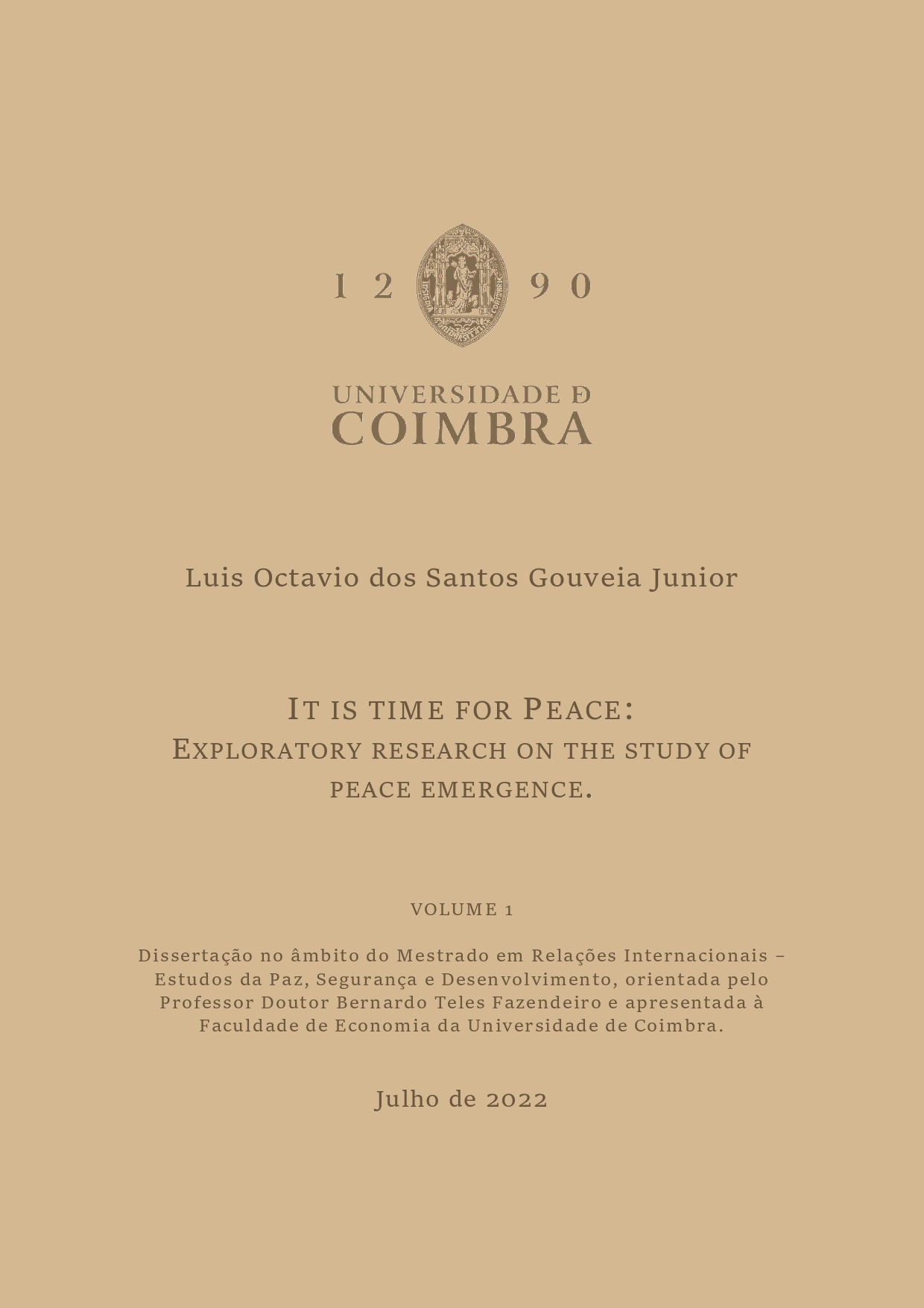Abstract
Recent research has identified that peace studies have focused extensively on violence and the causes of war. In a moment of crisis within the discipline, turning the focus to the causes of peace could arguably open space for innovative research. To that effect, this study consists of exploratory research. It interrogates how the study of the causes of peace can open space for new inquiries and hypotheses. Thus, I confronted mainstream international relations theories (neorealism, neoliberalism, and constructivism), peace studies, and two theories about the causes of peace. These two theories are the democratic peace theory and, what I labeled, civilizing processes theory. Among the theories and authors analyzed, I found that constructivism and civilizing process theory are the two most promising theories for innovation. Since the two theories look at how culture and identity forge peace, I coined three possibilities for innovation: 1- to study the formation of collective identity and a culture of peace; 2- the study of peaceful countries; 3- methodological approaches like historical or discourse analysis. To test empirically if these three hypotheses really offer space for innovation, I analyzed the publications of the Journal of Peace Research, the most important academic journal of the discipline. As result of the analysis, I found a substantial shortage of studies about the countries considered to be the most peaceful and about how culture influences peace. As expected, constructivist and civilizing process concepts have been underused among scholars. These findings can offer a valuable contribution to furthering research based on the causes of peace as opposed to the causes of war and violence.

Luis Gouveia Junior has a degree in International Relations from the University of Coimbra and a master’s degree in International Relations – Peace, Security and Development Studies from the same University. He also completed a Masters in Latin American Studies from the University of Oxford. He is a human rights activist and his academic research focuses primarily on peace studies, international relations theory and Latin America





